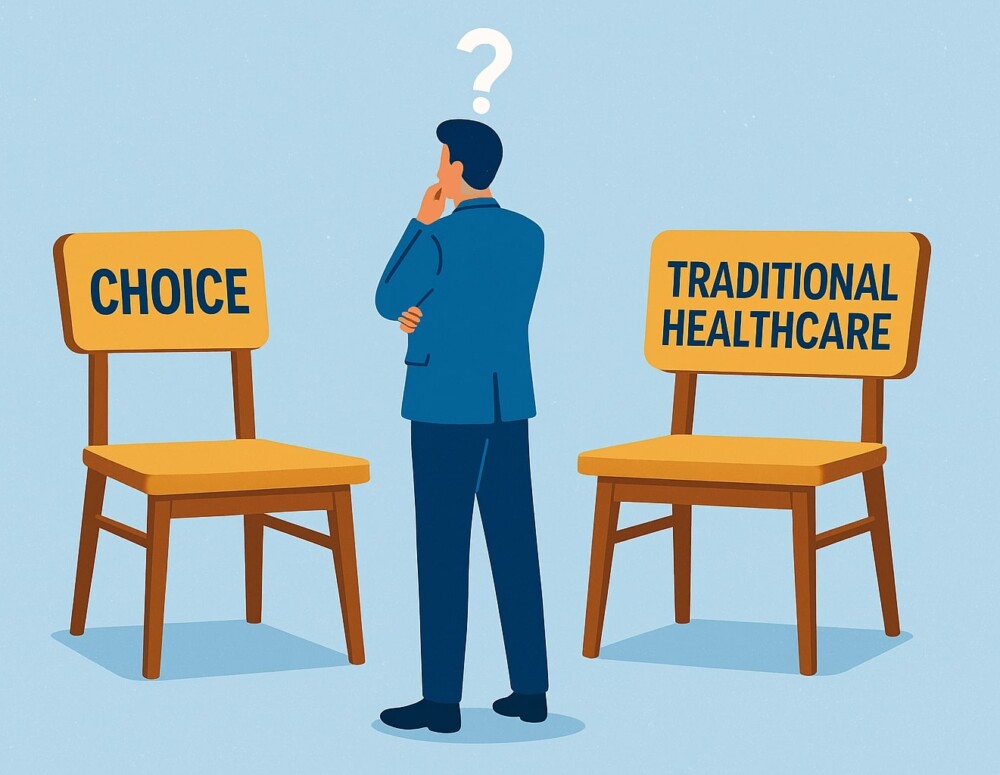Is This ICHRA’s Moment? How the One Big Beautiful Bill Could Reshape Healthcare Access
 by Jess Southwell
by Jess Southwell

The Bill That’s Turning Heads in the Benefits World
There’s growing buzz in the ICHRA world about Part 3 of The One Big Beautiful Bill—and for good reason. At first glance, it offers a bold vision for reshaping how American workers and families access healthcare. But dig deeper, and the picture gets more complex.
Some in the healthcare space dismiss this legislation as merely “rearranging deck chairs.” But maybe it’s more like a game of musical chairs: when the music stops, not everyone will still have a seat. The fear isn’t hypothetical—cuts to Medicaid, ACA rollbacks, and shifting tax incentives could leave some individuals scrambling for coverage, or worse, losing it altogether.
What’s at Stake?
- Medicaid Reductions: Budget tightening means many lower-income Americans may be forced out of public programs and into uncertain alternatives—or out of coverage entirely.
- ACA Adjustments: Rolling back core elements of the Affordable Care Act could drive up premiums, particularly for those who rely on subsidized individual plans.
- Tax Credit Tradeoffs: Paid Family Leave (PFL) tax credits sound like a win, but without simplified filing tools like Direct File or Free File, many families may struggle to realize the benefits.
On the surface, the bill emphasizes individual empowerment and flexibility. And that’s where ICHRA—Individual Coverage Health Reimbursement Arrangements—comes in.
Is This ICHRA’s Moment?
Absolutely. In many ways, this bill strengthens the case for ICHRA, or as it’s being rebranded in broader terms: CHOICE. ICHRAs give employers a new way to offer health benefits—one that’s flexible, budget-friendly, and portable for employees.
But with greater flexibility comes greater responsibility. If CHOICE is the new standard, education, support, and clarity must follow. Employees need help navigating their options. Employers need help structuring smart, compliant programs. Otherwise, we risk trading complexity for chaos.
For those of us working in this space, this is our moment to step up. We must make the shift from legacy benefits to CHOICE-based models as seamless and intuitive as possible. Because if we’re truly offering Americans a better path, it has to be one they can confidently walk.
A Personal Take
Do I believe in individual empowerment, freedom of choice, and personal responsibility? Without question.
But I worry that in making room for some, we may be removing the chair from someone else. If we’re not careful, this bill could become a story of gain for some and loss for others.
So call it what you will:
A game changer. A reshuffle. A reckoning.
Personally, I’d call it the “Individual Choice in Health and Benefits Act”—or maybe more honestly, the “Health Coverage Reduction and Realignment Act.”
Regardless of your stance, this bill is a wake-up call. If CHOICE is the future, let’s make sure everyone gets a fair shot at finding their seat.
 ?
?